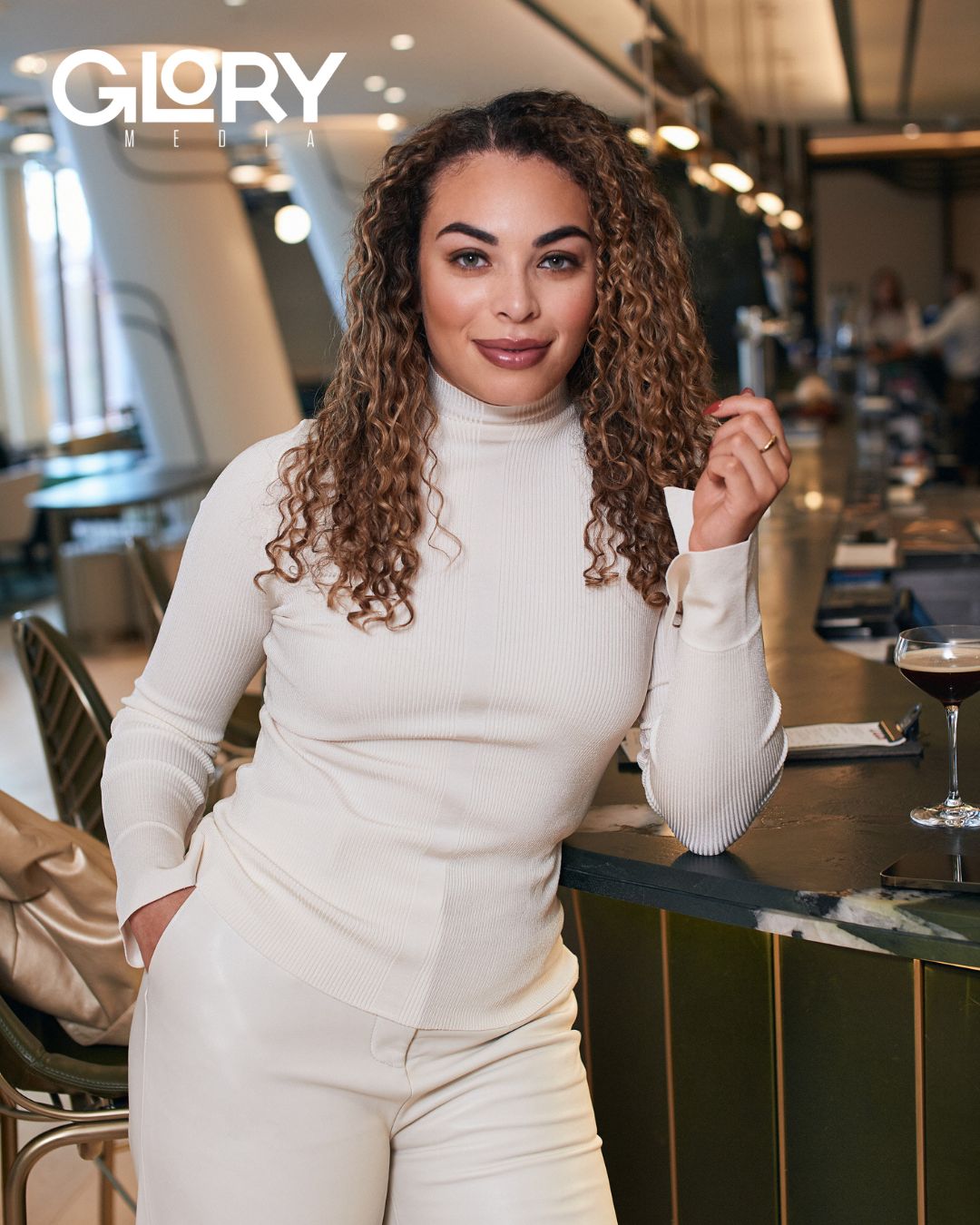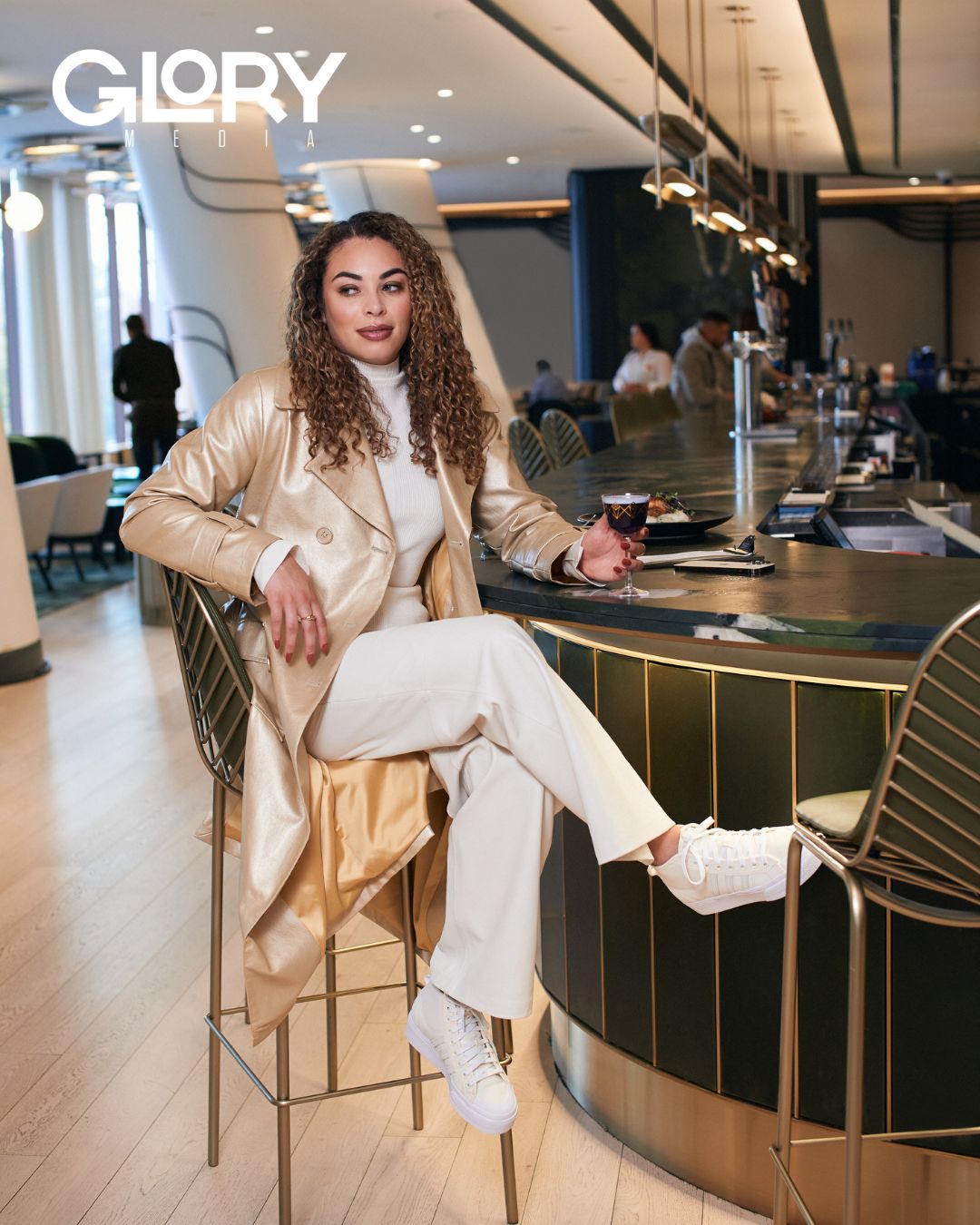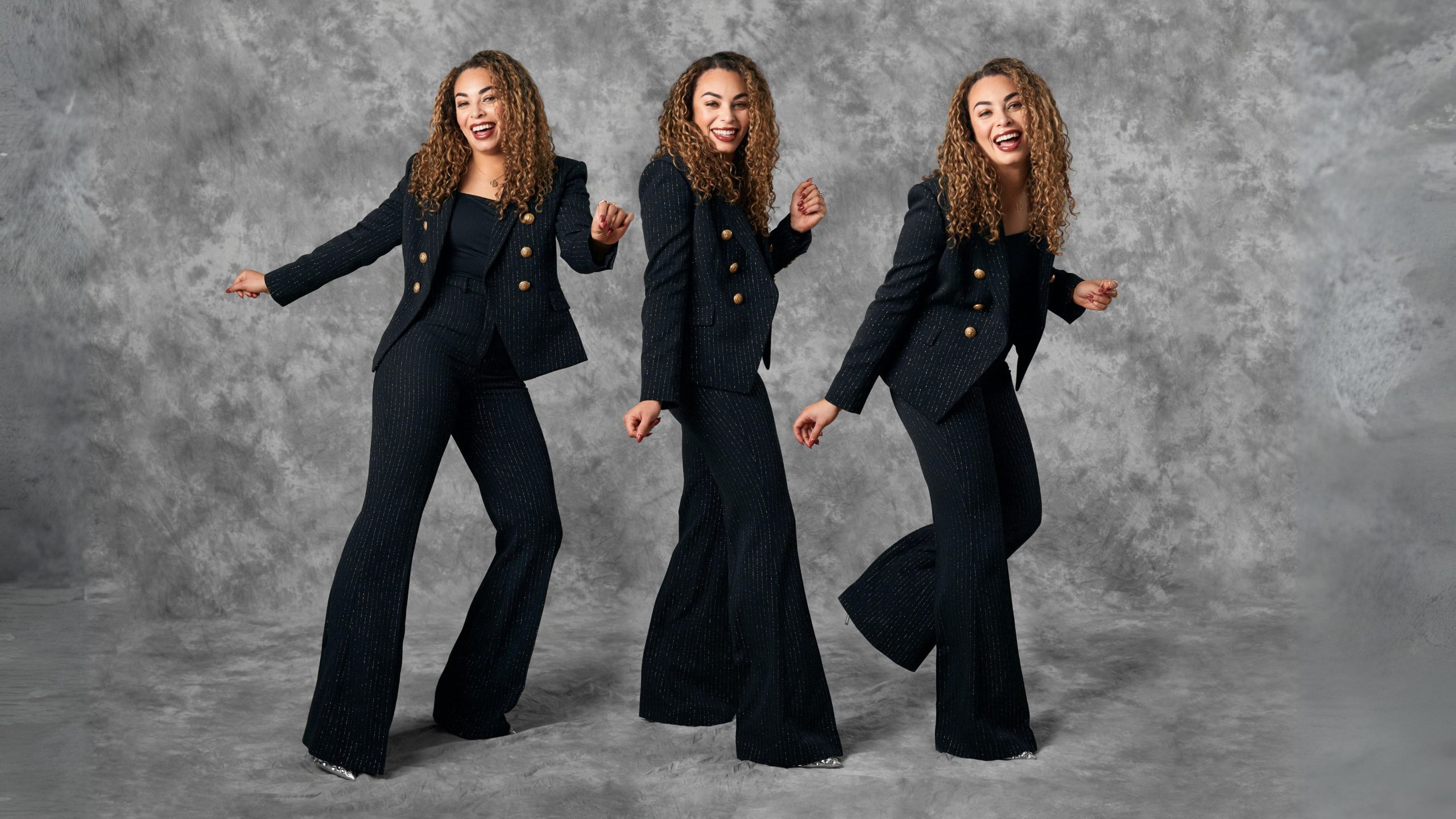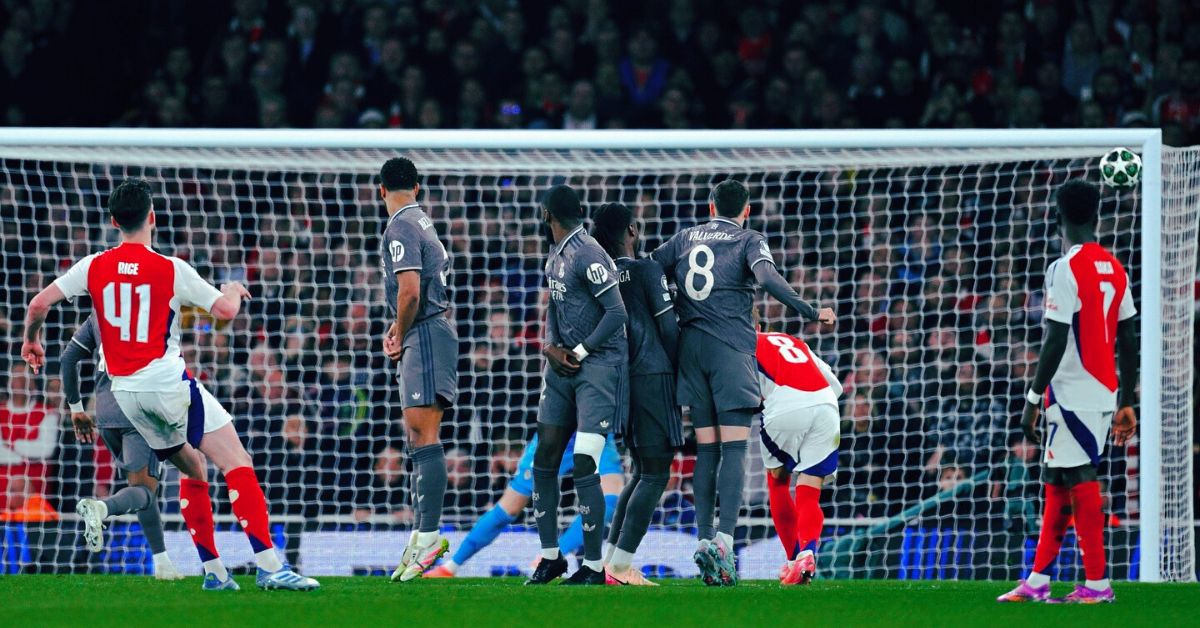In the world of hockey, Sarah Nurse is more than a record-breaking Olympian; she’s a pivotal figure steering the sport into a transformative era. Boasting gold and silver Olympic medals, Nurse is now charting a groundbreaking course with a significant three-year commitment to the Professional Women’s Hockey League (PWHL) Toronto franchise. A nascent but formidable entity, the PWHL represents a seismic shift in the landscape of women’s sports and the popularity of hockey, itself.
With the PWHL, Nurse stands at the forefront of a movement poised to redefine not only hockey but also the broader narrative of women in sports. For GLORY, Nurse discusses the pioneering new league, the empowered athlete, and creating a more inclusive space within hockey.
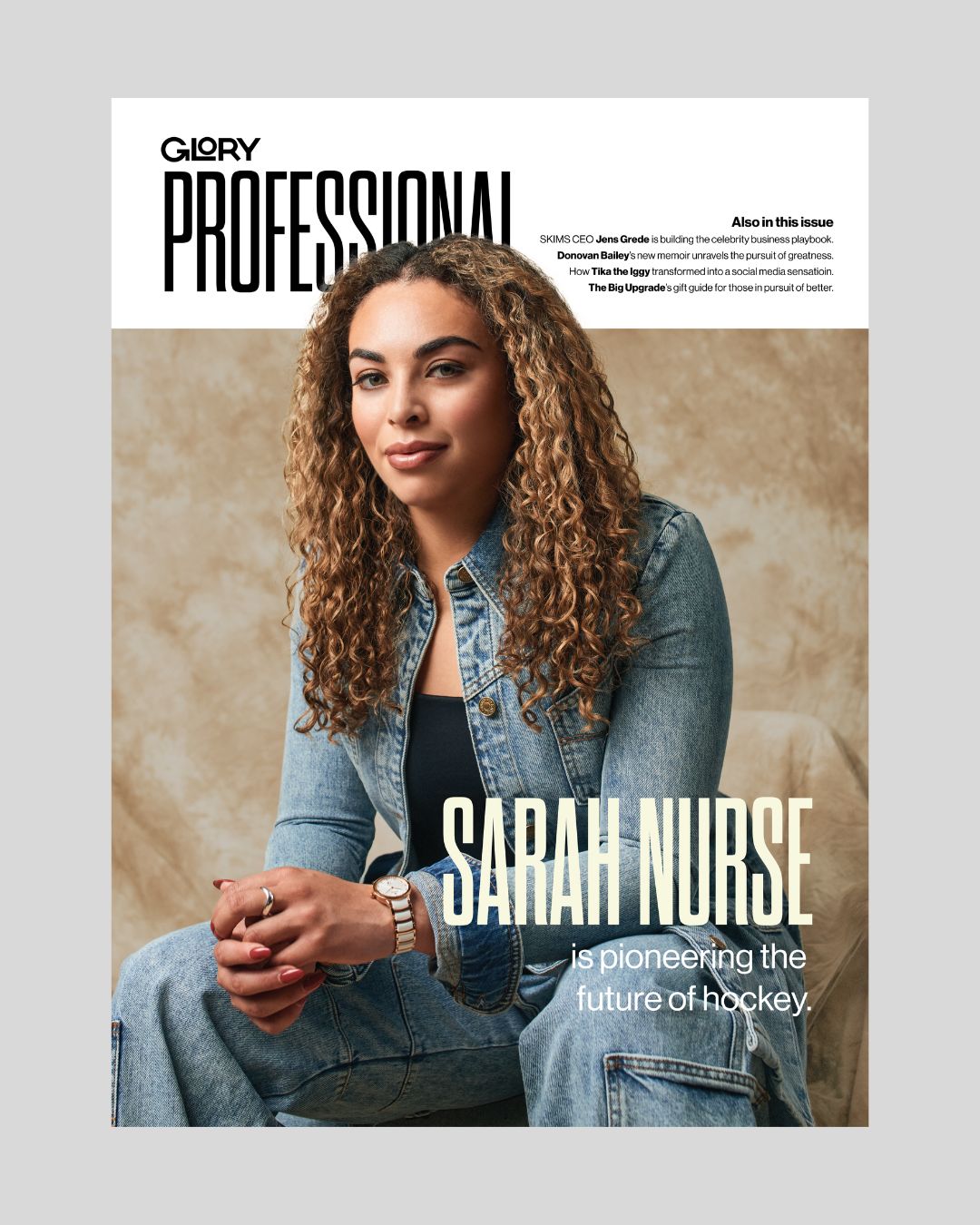

Photographer: Ilich Mejia
Stylist: Amber Watkins
Beauty: Antonio Hines
Hair: Tonie Henry
Shot on location at Canopy by Hilton Toronto Yorkville
The inaugural season of the PWHL begins in January 2024. What can you share about the format?
Sarah Nurse: We’re very excited to kick off the first inaugural season of the PWHL. Getting to this point has felt like a labour of love, and we’re very excited to show what we have to offer to everybody. The first season, there’ll be between 24 to 26 regular season games before heading into playoff time with four teams and a five-game series to crown the champion.
You were very involved early on with the creation of the league. What were some of the aspects that you advocated for so that everyone was fairly represented and accommodated?
Sarah Nurse: I think the most important thing when we were coming to the creation of the league was making sure that we had different perspectives from all of the different parties involved, from player, to staff, to a fan perspective, and making sure that everybody had the best possible experience. I would say that professionalism was definitely one of the biggest things for us, making sure that the players felt like professionals, and that from an outside perspective looking in, it looked like a professional organization—something that was well run and executed properly.
There are six teams—Montreal, Toronto, Ottawa, Minnesota, New York, and Boston. What makes these cities such great markets for women’s sports, and specifically women’s hockey?
Sarah Nurse: I look at our original six markets, and it’s pretty exciting. I’m partial to Toronto, it’s the hockey mecca here in Canada. Being able to play in a professional organization in Toronto is really special. We have a huge population of girls and women’s hockey in Ontario, so it felt like a natural fit. So many of the other markets definitely felt the same. They felt like no-brainers.
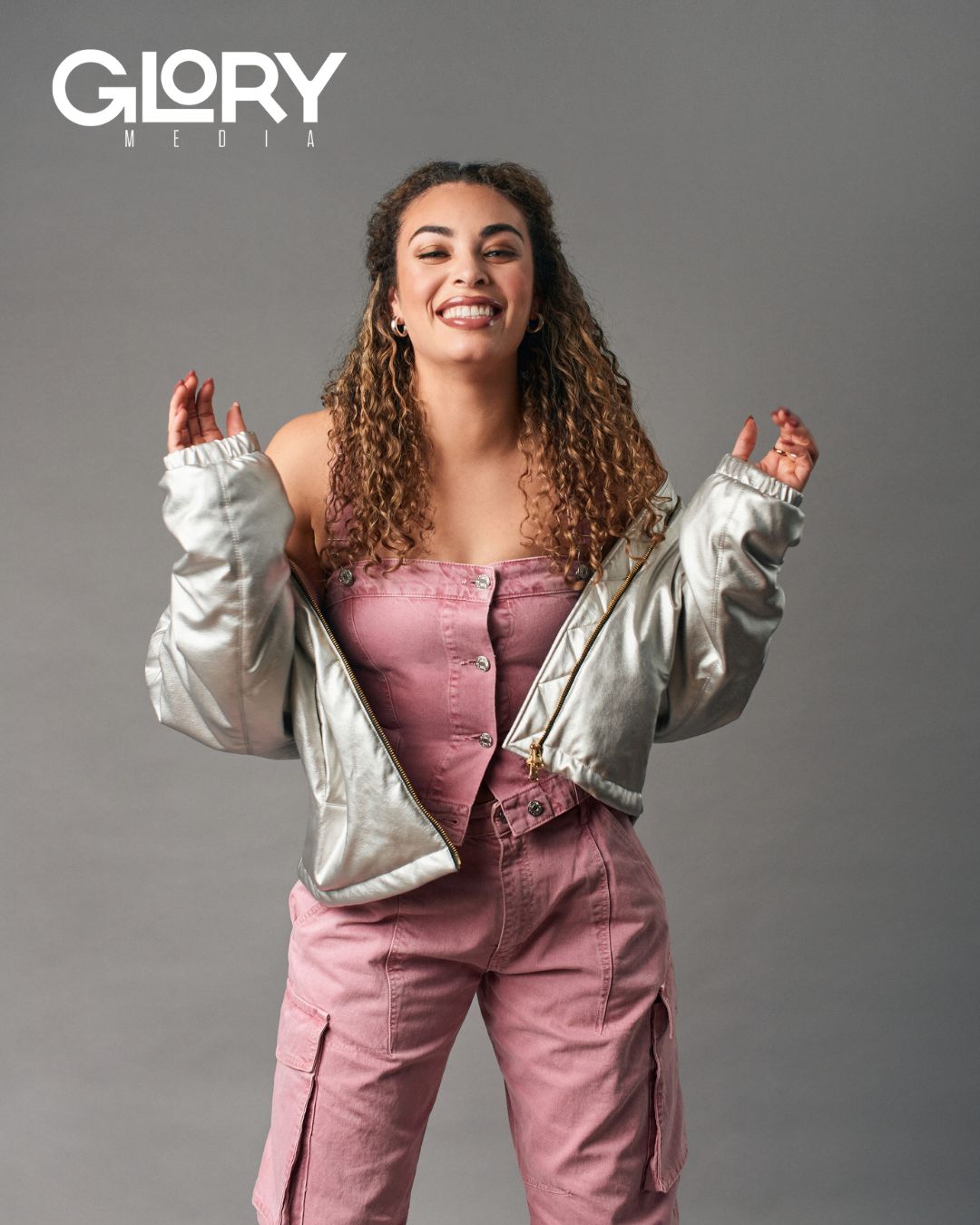

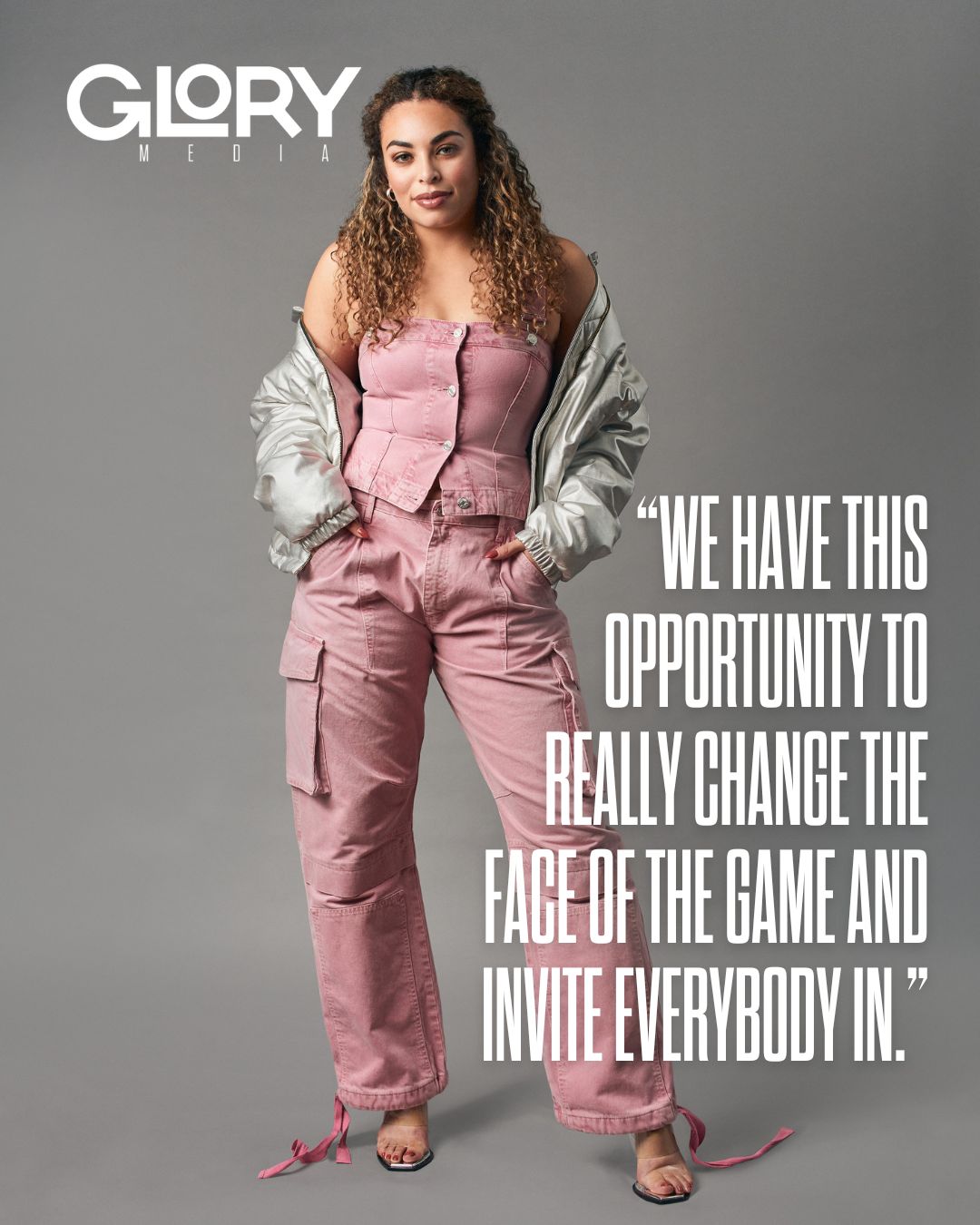

In May, we saw the first WNBA game in Toronto. There was a packed stadium, jerseys, merch—the whole nine yards. Considering how Toronto is a hockey town, how do you think it will receive a new hockey organization in the women’s team?
Sarah Nurse: The WNBA game was an awesome experience. The energy in the city was pretty electric the entire time. When I think about being able to bring not only professional women’s hockey to Toronto, but professional women’s sports, we’re going to be the only team in town. I think that there are so many people ready to embrace that and ready to see how good we are as players and get to know us off the ice.
There must be some pressure knowing that you’re going into a town that has not had a hockey championship since 1967. You’re joining your Olympic teammates, Blayre Turnbull and Renata Fast, who you have had so much success together. Do you think that you can bring this city a championship in hockey that they’ve been waiting for?
Sarah Nurse: I hope that all of the Toronto teams can achieve success and win championships, but if we can be the first one in 50 years, I think that’ll be pretty special. We really hope that we can be that team and bring some hope back into the city. I just think that the support in the city for hockey and for sports is through the roof. We’re very excited to see where we land.
RELATED: Meet Luke Prokop, the Trailblazer Evolving Hockey Culture
In the NHL, it seems like a lot of the players are very controlled and reserved. There are not very many advocates. What can the PWHL do to not become a part of the same narrative, and pave a path of its own where players are advocates and outspoken?
Sarah Nurse: When I look at what we are doing with the PWHL and our players, we have a huge opportunity here. Hockey has been so reserved and quiet. Our players are ready to really break out of that mold and show everybody who we are as people. Obviously, we play a sport that many people love, but we all have so many different interests. And there is definitely more representation in our league. We are able to connect with different groups who may have not always felt welcome in hockey. We have this opportunity to really change the face of the game and invite everybody in.
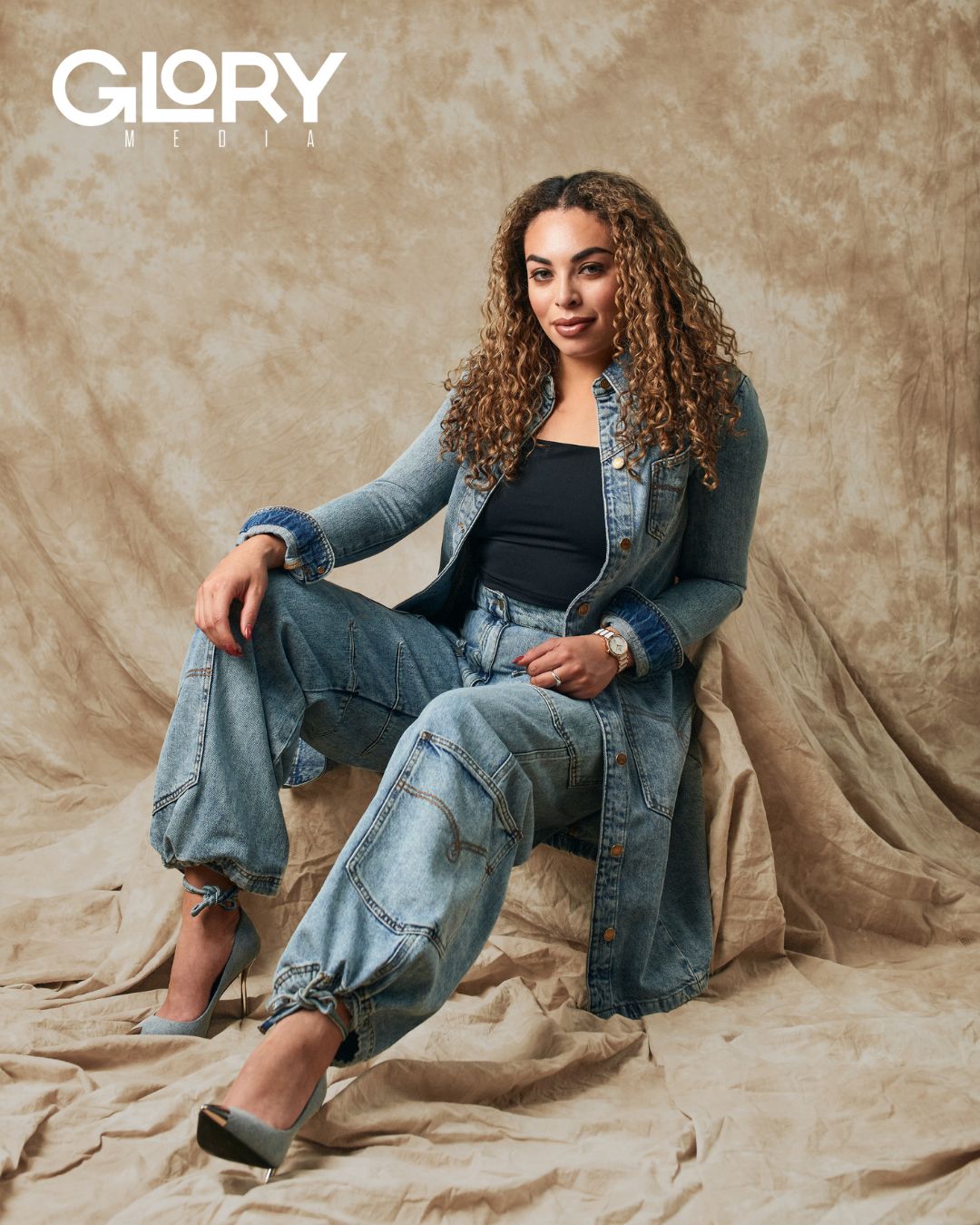

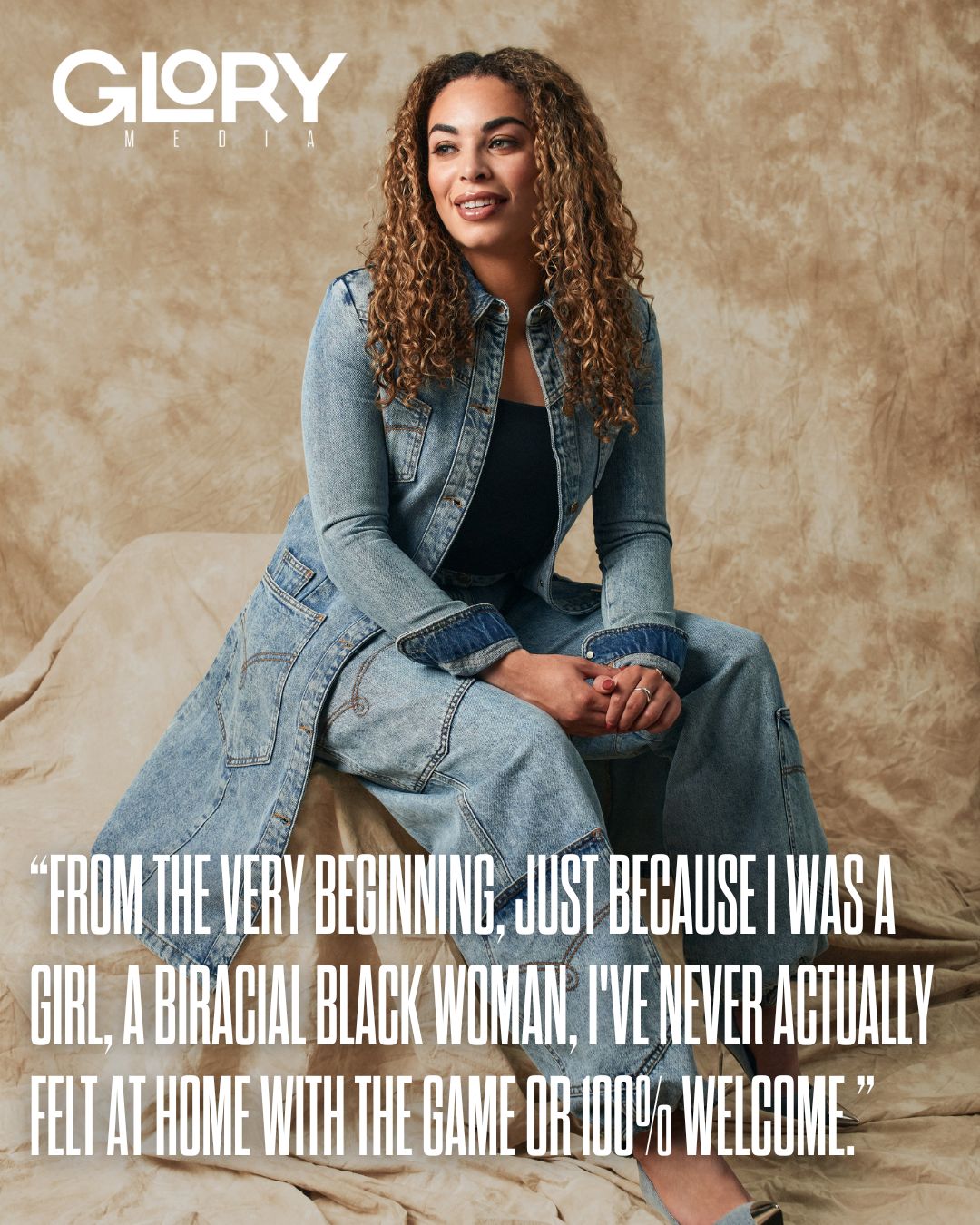

Historically, hockey has been a sport where if you don’t fall into the “status quo”, then you’re an outsider and can face a lot of discrimination. Along your career trajectory, did you experience any forms of racism or sexism within the confines of the game?
Sarah Nurse: For a very long time, I was the only girl who played hockey. Until I saw women play in 2002 at the Olympics, I thought that I was the only girl who played hockey. My teammates were amazing. The boys were awesome. The parents were a whole different story. They didn’t like that I was playing with their sons—that I was beating some of their sons. That was definitely hard growing up but I had a great support system and a great family who was there for me and helped me through those times.
When I think about hockey, I think about the lack of freedom to express yourself. I’ll never forget when I was young, we started dressing up for game days. You have little kids in these suits and ties and I wanted to wear a dress. I remember asking my coach if I could wear a dress or a skirt to the game because the boys were wearing suit and ties, and he flat out said no. So, my way to express myself in those moments was a pink button-up shirt and a Toronto Maple Leaf tie. I made it my own as best as I could, but I just remember that [sense of self-]expression being flattened.
Will the PWHL allow players to be more expressive?
Sarah Nurse: I think what’s really woven into women’s hockey for so long has been that community aspect, being accessible and relatable to our audience. We’re always out in the community doing things and showing who we are as people. I’m very excited. I know my teammates are very excited for game day walk-in fits [so we can] show a little bit of ourselves instead of walking in a suit and tie. That’s something that I am absolutely so excited for because I think that that is the biggest way that you can make a statement and express yourself.
In North America, athletes are sometimes defined as “just” that, athletes. You have done the complete opposite and made yourself into the person who brings light to representation as an advocate and spokesperson. You’re a role model. How did you find that within yourself?
Sarah Nurse: From the very beginning, just because I was a girl, a biracial Black woman, I’ve never actually felt at home with the game or 100% welcome. And so, I never actually felt that it was the place for me and my be all, end all. As I’ve gotten older, I’ve realized that my sport has been able to provide me with a platform that I’ve been able to blow up. In 2020, when instances of racism and racial inequality were obviously brought up, I realized that I had the opportunity to reach an audience who isn’t normally reached out to. You look at a sport like basketball, there’s a large concentration and a large population of Black people. In hockey, that wasn’t the case. I realized that I could bring a message to a population of people who didn’t usually get it. I felt that responsibility and privilege to help bring awareness and education to people. That is something that I take very seriously.
You’re the first woman to be on the cover of an NHL game, which is a huge accomplishment. You’re showcasing to young women around the world that it is possible and there is space within this sport. Where does that rank on your list of accomplishments?
Sarah Nurse: I think that that accomplishment is so awesome. It was really cool because the NHL game was something that I’ve been very familiar with. I have brothers, they love playing video games.
I think that that was pretty monumental for the real direction of our sport because not only did it give young girls the opportunity to have somebody to look up to, it also provided young boys the opportunity to see that a woman can be a professional athlete, too. A woman actually has game. That was really important because there are so many young boys who will come up to me now and be like, “Oh my God, that’s so cool. You’re the one on the video game.” It almost provides legitimacy to women in hockey, which we definitely need. It’s just inspired me in a lot of different ways. I’ve had a lot of full circle moments since that cover has been released.
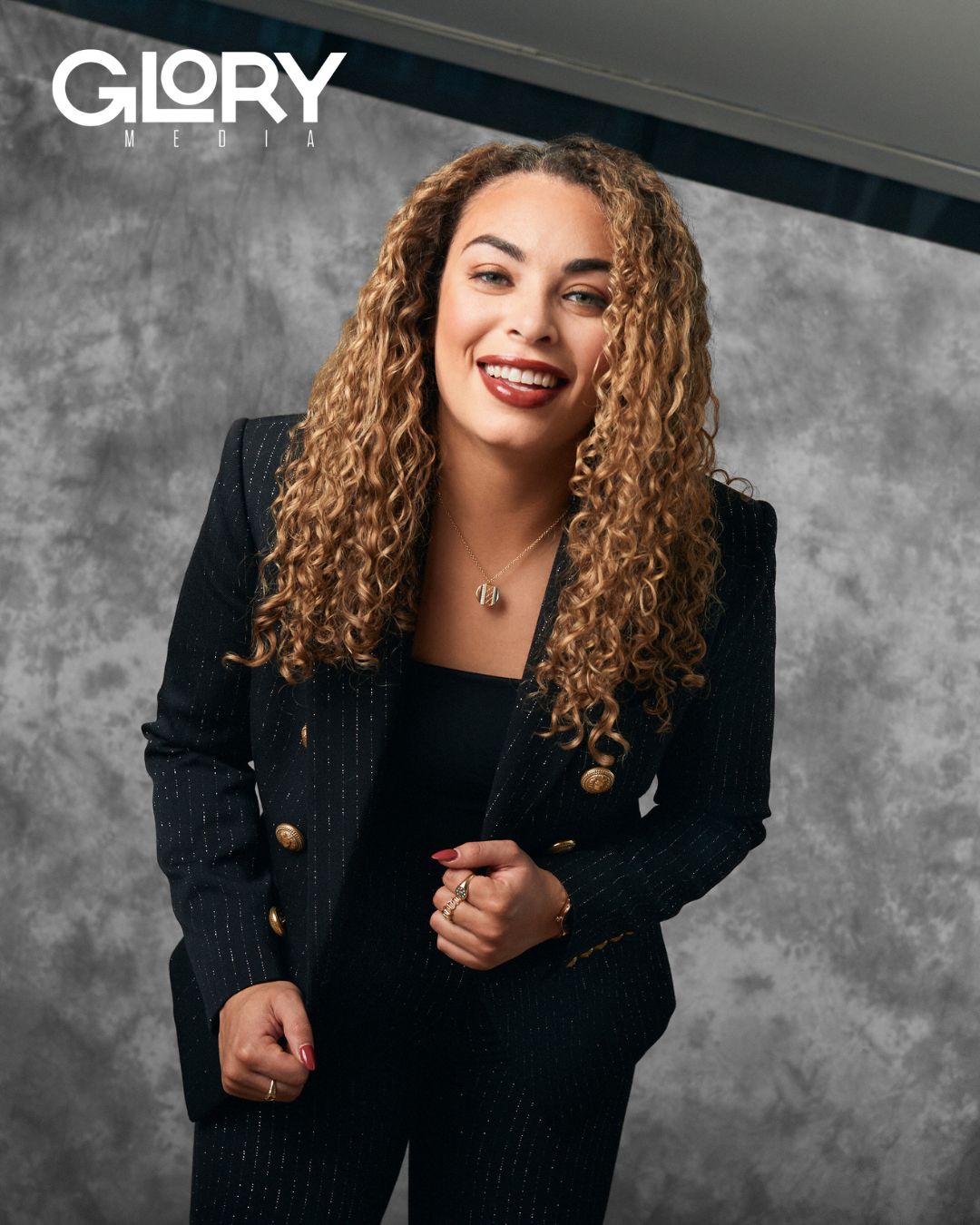

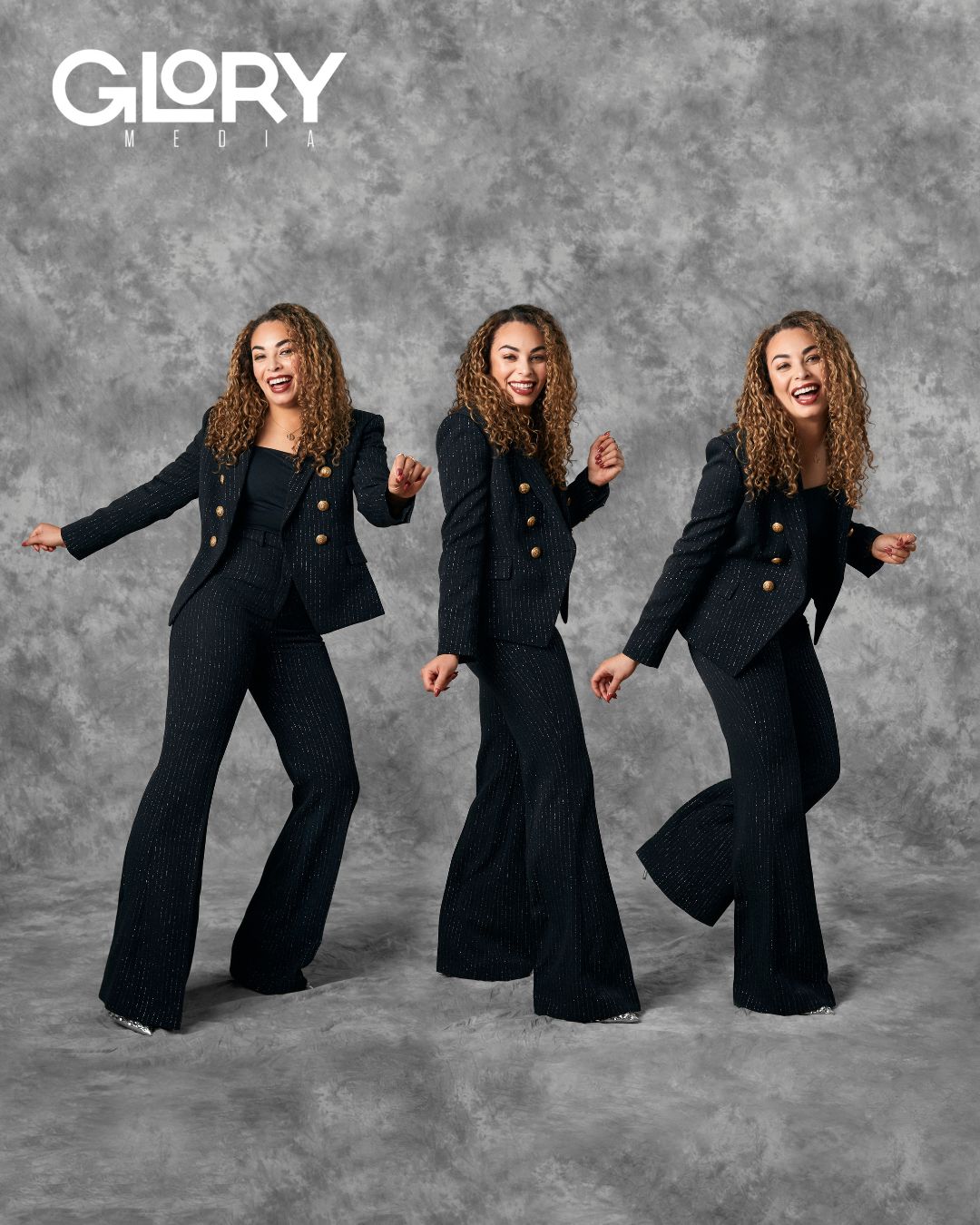

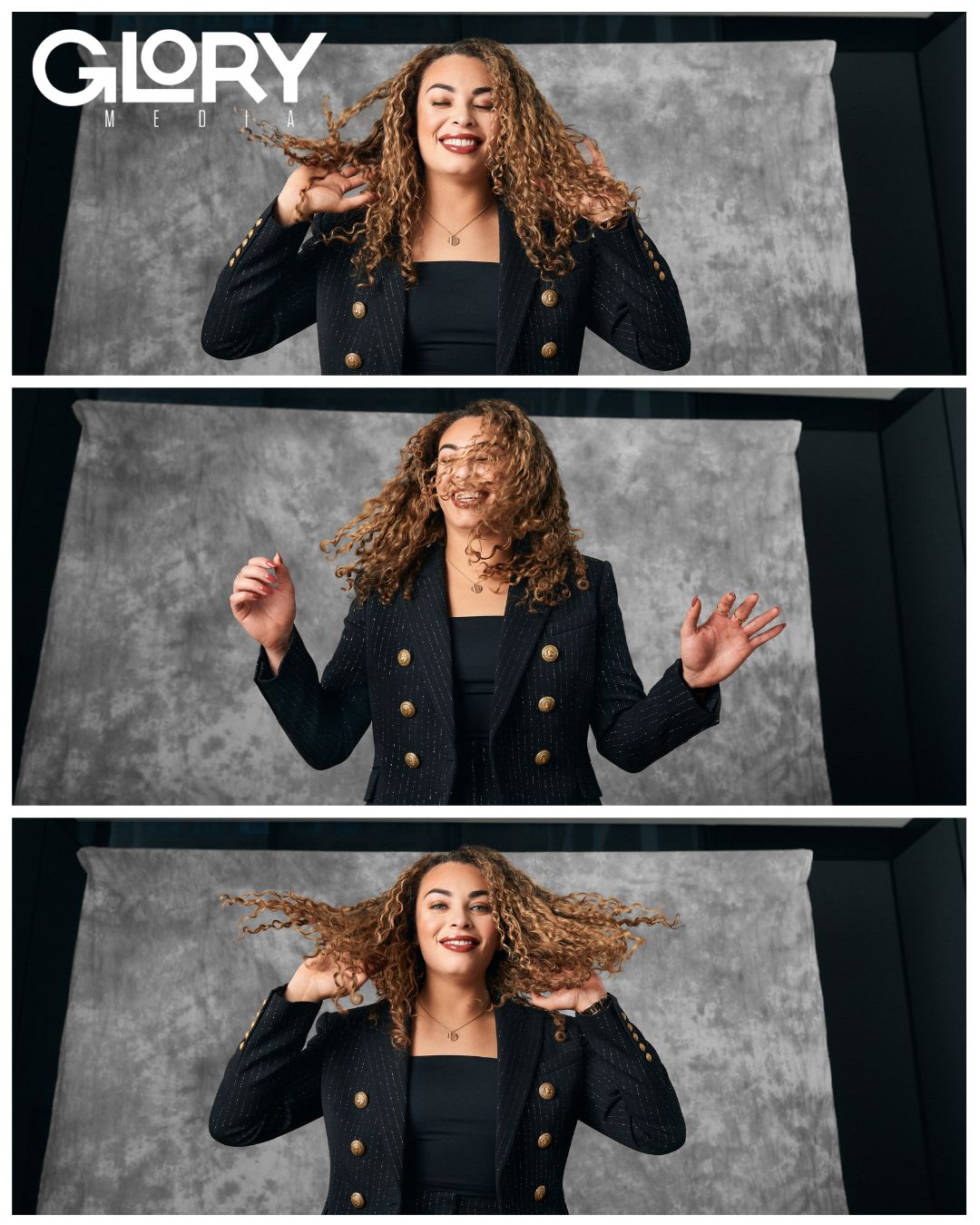

You’re involved with the Black Girl Hockey Club organization, which strives to make hockey more inclusive for Black women. What has that experience been like for you?
Sarah Nurse: I have been able to work alongside Black Girl Hockey Club and amplify their message. They have some pretty amazing people who run their organization in both Canada and the United States, like Renee Hess and Saroya Tinker. They want to make hockey a welcoming environment for everybody, especially from a fan perspective. Obviously, there are so many initiatives and programs that introduce minority players to hockey but from a fan perspective, they need a safe space too. They want to watch hockey, they need to be able to feel like they’re welcome and not going to get ridiculed.
RELATED: How Serena Williams is Filling the Gap for Black Women Entrepreneurs
That’s the unique thing that first drew me to Black Girl Hockey Club. Since then, it has just taken off. It’s been so cool to see young girls go through the mentorship programs that they put on. They have meetups at different NHL games, at Team Canada, Team USA games. It’s been incredibly awesome to just see it blossom. I’m so proud of everybody who is involved in the Black Girl Hockey Club.
We’ve talked about you being a role model to many. Who was your role model?
Sarah Nurse: I would definitely say, my mom and dad. They were so awesome throughout my entire career and so supportive in helping me be the person that I am today. It’s really cool that I get to accomplish great things on the ice and off of the ice, something as little as getting to take my dad to a Leaf game is so fulfilling to me because we’d never been able to do that growing up. Things were expensive, we were busy, it was hard to get to.
Who is a player, man or woman, that you aspired to be or play like?
Sarah Nurse: I loved Jarome Iginla growing up. Being a prominent Black figure in the NHL was pretty cool. And being able to hear his story and seeing how dominant he was in the league was always awesome to look up to. There’s also Cassie Campbell, who I’ve gotten to know since her playing career. She’s such an inspiration to so many, and she’s an incredible speaker, mentor, and leader. Just seeing the way that she carries herself with so much grace and humour (she’s absolutely hilarious)—she’s accomplished so much and continues to impact the sport every day.
With PWHL coming, there are a lot of new things on your horizon. What is next for you within the sport and outside of it?
Sarah Nurse: Kicking off the PWHL season, it’s super exciting that we’re at this point. I hope to be winning a lot of games, scoring some goals, and bringing home a championship to Toronto. Outside the sport, I’m looking into different endeavors away from the game, whether that’s investing, real estate, and growing my own personal brand as I continue on throughout this journey. I feel like I’ve been very fortunate up to this point. I’m very excited for what’s ahead.
What does the word ‘glory’ mean to you?
Sarah Nurse: When I think of glory, I think I associate it with legacy, the impact you have, and the statement that you can leave behind. When I think of myself in 10, 20 years, I don’t necessarily want people to remember me for what I’ve done on the ice. I want people to remember me for what I’ve been able to do away from the rink and how I’ve been able to impact the next generation. When I think of glory, I think of leaving a legacy for the next generation.
